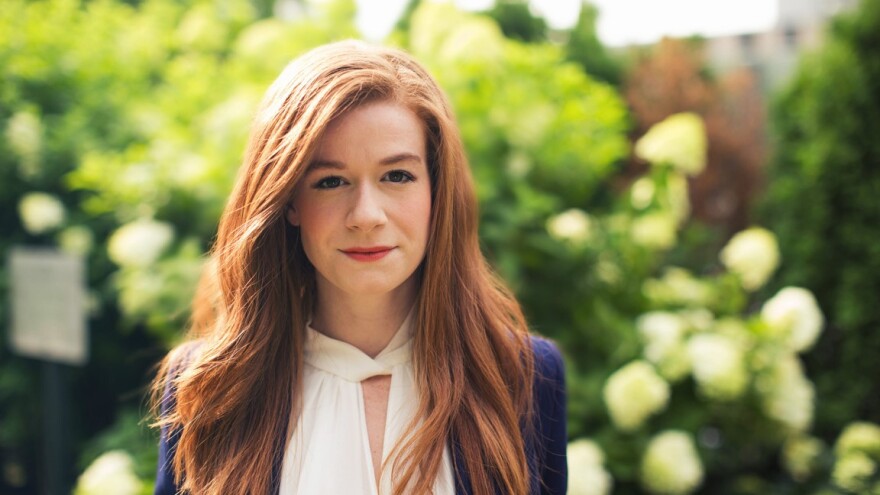One of the newcomers heading to Lansing in January is Senator-elect Mallory McMorrow. A Democrat, McMorrow won her first-ever bid for office, unseating Republican Marty Knollenberg in Oakland County’s 13th district.
She comes from the world of auto design. Her accomplishments include a patent for a ride-on toy called the Urban Shredder, resembling a skateboard that you ride face down.
WKAR science reporter Scott Pohl talked with Mallory McMorrow about making Michigan the center of the autonomous vehicle industry.
MALLORY McMORROW: I think that when you look at the future of autonomous vehicles, electric vehicles, it’s not just going to be what comes out of the big three, it’s going to be all of the support businesses that are going to be required to build around that industry. I think that if we really plan for the future, we can be the center of that, but right now, we are competing with the likes of Silicon Valley for engineering talent, for technical talent and for design talent, and I think we have to rethink how we approach the automotive industry. I think we’ve taken for granted for a long time that we have the big three, that we have the capabilities in manufacturing, but how do we support the small businesses, the tech talent that’s going to be required to make this the place where we innovate and we build those cars and it comes out of here, not Pittsburgh or Silicon Valley.
SCOTT POHL: Has Michigan government been a roadblock to development in that regard in any way?
MM: I think we could certainly do more. I think that when you are looking it again, I mentioned Pittsburgh as a great example of another Midwestern city that’s really reshaping itself and leaning into being more friendly to autonomous vehicle development, and testing and incentivizing these smaller businesses that go along with this industry, so I think that when we’re thinking of what does the next phase of the auto industry look like, I think we have to start incentivizing those support systems.
SP: Can the universities, like Michigan State and others, do more to make Michigan the center of the autonomous vehicle world, and can Lansing foster that in the higher education community?
MM: I think we absolutely can. One of the things about Michigan is we have some of the best universities and colleges in the world. We attract amazing talent, but what are going to be those steps to cultivate those programs that are really interesting, and what’s that step that’s going to keep them here? We get a lot of people who come to the universities to study, but we see them leaving for other opportunities, so I think that’s where we should look at public-private partnerships. What can we do to create these programs where there are collaborative projects done in partnership with the universities that is going to spark students interests and then keep them here, whether it’s starting their own small business or moving into one of the big three?
SP: Your campaign website had a video focusing on the word creativity. You seem to be saying that creativity has not been a focus at the Capitol, so how can lawmakers foster that or leverage government so that creative forces can lead us to a brighter future?
MM: When you look at everything that we’ve done as a state, creativity has empowered some of the businesses in Michigan to change the world. It has allowed us to imagine a future that doesn’t exist yet, and then create it. When I look at the process by which we create legislation, it’s very reactive. We see a problem and then it almost feels like the first solution that comes up is the one that we run with and we put forth in legislation and we try to vote it through.
When you’re designing a product, there is a process called design thinking, which is now being taught in business schools and leveraged in other industries. It’s very much like the scientific method to solving a problem, so you start with asking a lot of questions. Often times, the real problem is not what is sitting on the surface. It’s the old Henry Ford adage of “if I asked people what they wanted, they would have said a faster horse.” You have to dig in, ask a lot of questions, observe people where they are, hold focus groups, do testing, and then come up with a thousand different ideas and test them to find the one that’s the real solution.
I think leveraging my career background to bring some of this process in will allow us to come up with more creative solutions, and maybe even answering questions that might not have been the original question, to help more people. I think that’s where we’re at right now, is we come up with solutions that create ten more problems unknowingly, where if we had tested them, if it had been more collaborative, if it had been community-driven, we could avoid those situations.



